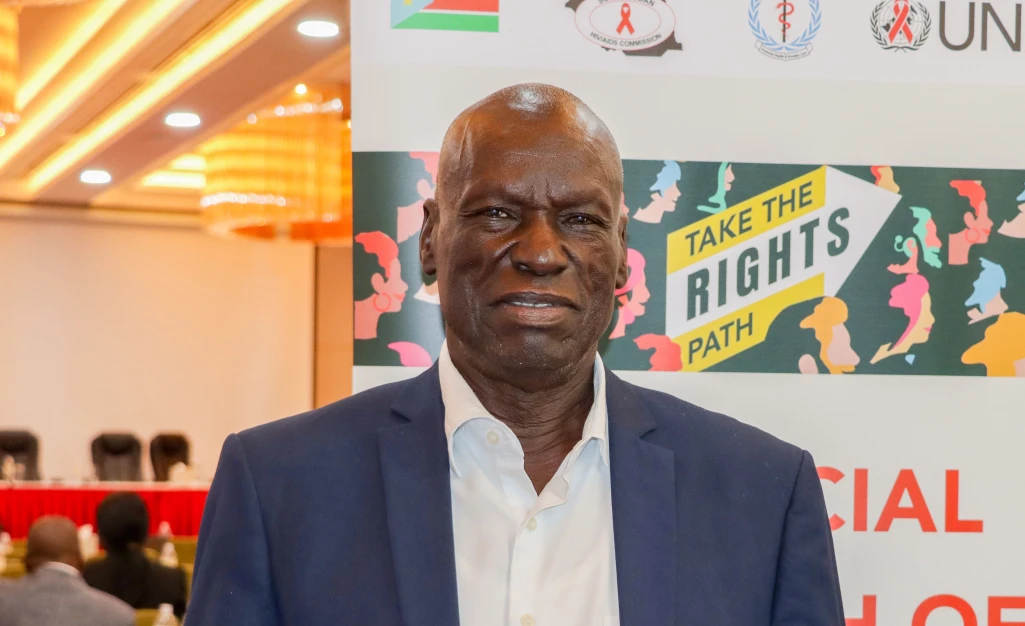
The executive director of the South Sudan Network of
Persons Living with HIV/AIDS has called for greater transparency about HIV
status.
Lole Laile Lole was diagnosed with HIV/AIDS in 2002 and has
been living with the disease for the past 22 years.
After receiving his laboratory results, he experienced deep sadness and stress.
“It is a long story from way back in 1985; testing was
not available in, not even a facility; the hospital at that time was treating
other diseases because it had not been discovered at that time; HIV was
discovered in 1996, in South Sudan," Lole told The
Radio Community on the sidelines of the World AIDS Day launch in Juba on Friday.
"In 1995, I lost a child; we were unaware of the
illness; it persisted until the second time in 1988, and then again in 2001. I
had to send my wife to Khartoum in 2001 to go for testing; she tested positive;
I did the same in 2002 and tested positive.”
He recalls the time when he went to the hospital for a
test, mentioning that before he received the results, he noticed all the health
personnel had disappeared.
“I was left wondering; I did not know what to do next,
but I waited and waited and insisted on being given the results; it was
positive—I came back to Juba. Why me? Where did it come from? Lole said he
asked himself," he continued.
Lole reports that his wife passed away in the same year,
2002. He says the year was very challenging.
“We were going through a lot that time with the family;
we said, 'As a family, it is the will of God',” he expressed.
He had no choice but to accept the results, and since he
had received counseling throughout the journey, he prayed to God.
In 2002, Lole established an organization with assistance
from the UNDP and the Global Fund. His goal for the organization was to provide
medical care to individuals who were isolated.
He disclosed, “Global Fund has become my medicine, my main supporter
through counseling and providing drugs.”
Lole, 67, named his organization “The South Sudan Network of
People Living with HIV (SSNeP+).
It is an organization that aims to improve the lives of
people living with HIV (PLHIV) in South Sudan. SSNeP+ works to achieve the
following goals: zero new infections, zero AIDS-related deaths, and zero
discrimination.
“When you declare your status, you don’t face stigma or
discrimination; the problem is that when you don’t declare, you face internal
stigma—you become free when you declare yourself,” Lole Laile Lole stated.
He says people who have had the virus for over 20 years
are coping well because they take the right medicine.
“Do not isolate yourself; come out and clear your status. The South Sudan Network of People Living with HIV (SSNeP+) works with community groups to promote HIV treatment and prevention services, including HIV counseling and testing, HIV screening for pregnant mothers, supporting PLHIV to stay on treatment, and monitoring the quality of service delivery," he added.
HIV/AIDS country facts
HIV is a public
health priority in South Sudan, and the epidemic is thought to vary across the
country:
Prevalence: In 2022, the estimated HIV prevalence for
people aged 15–49 was 1.9%. However, a survey of female sex workers in Juba
found an estimated HIV prevalence of 37.8%.
AIDS deaths: In 2022, an estimated 6,100 people aged 15
and older died from AIDS.
Orphans: In 2022, an estimated 140,000 people were
orphaned due to AIDS.
Antiretroviral therapy: In 2022, an estimated 49,985
people aged 15 and older received antiretroviral therapy.
HIV prevalence in the southern states: The prevalence of
HIV in the southern states of the greater Equatorial region is higher than the
national average:
Western Equatoria: 6.8%
Central Equatoria: 3.1%
Eastern Equatoria: 4.0%
SSNeP+ works to promote the well-being of people living with HIV. Their goals include zero new infections, zero AIDS-related deaths, and zero discrimination